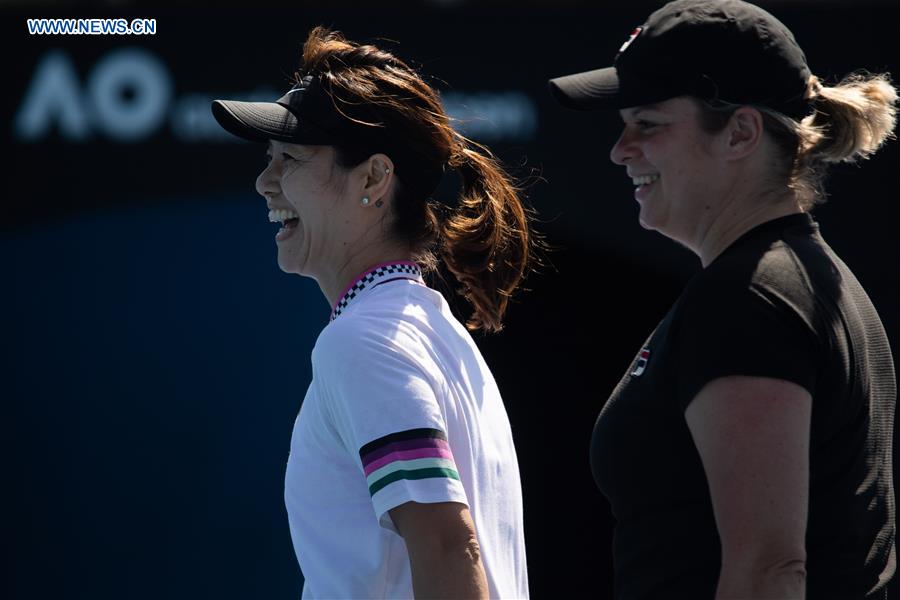Pursue your tennis dreams, Li Na urges Chinese girls
 0 Comment(s)
0 Comment(s) Print
Print E-mail SHINE, March 12, 2019
E-mail SHINE, March 12, 2019

Retired two-time Grand Slam winner Li Na is encouraging girls to pursue their sports dreams despite all kinds of prejudices, saying it's easier to be a female tennis player in China than a male star.
"Little girls should be more confident. They should not give up their dreams just to become one of the ordinary people or to meet other people's expectation," Li said during the "Just Do It Girls Sport Festival" in Shanghai. The festival began on International Women's Day on Friday, and is aimed at encouraging more women to get involved in sports.
"Some girls might want to do more sports, but when they are invited to go for movies or shopping, they don't refuse so as not to look too special.
"The situation might have improved now, but back in my school days, people still held prejudices against athletes, especially female athletes. They thought girls should care more about their studies instead of becoming sports professionals, who are usually physically strong but believed to be simple-minded," said Li, the mother of a girl and a boy.
Li's father was a professional badminton player, which made it easier for the 37-year-old to start pursuing her sports dream at a very young age.
"My primary school teacher once met my parents and suggested that I should give up tennis since my academic performance was good enough for me become a college graduate. My father's answer was: There can be many college graduates, but there will be only one national champion," Li recalled.
Having experienced both the "national system" and an independent career, Li has witnessed and was a prime force in the development of tennis in China.
"China's female players are actually lucky, at least in the sport of tennis. The girls can ask male athletes to serve as hitting partners and help in training, which is not a common practice in other countries," said Li. "China's tennis management center used to spend more than 65 percent of its resources on female players back in my days."
Four and a half years after her retirement, Li looked even slimmer than before. This she credits to her regular gym visits and about 10,000 meters of daily running.
"Athletes have to face success or failure alone at a very young age, something which other people of the same age cannot experience. Also, sport teaches one the spirit of teamwork," said Li. "What I want to thank my career most for is that it taught me self-discipline and inculcated the habit of exercising."
Li operates a tennis academy in her hometown of Wuhan in central Hubei Province.
"For young athletes, the most important thing is to avoid injury. I have been watching China's young tennis players closely, and I hope they can make "smart playing schedules" for themselves and avoid injuries," Li said.
"Both my husband and I agree that we should only guide children to sports before the age of four. After that, children can start to make their own choice according to their interest. But it will be very wrong if you don't even give children a chance to try sports.
"There is a new situation now which I am not sure is good or bad. Some parents realize that playing tennis can help children win scholarships in school applications. No matter what their purpose, the decision to allow or encourage children to play tennis is an improvement, which will also be a meaningful experience for the children," she concluded.






Go to Forum >>0 Comment(s)